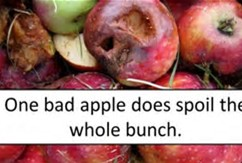The Faculty of Science/School of Psychology’s Equity and
Diversity Group and the Cognitive Research Group are very proud to host two
presentations by Professor Mary Peterson from the University of Arizona:
a science talk on object perception (Thursday 30 March)
and a seminar + Q&A session on gender equity in science (Friday 31 March).
Presentation 1: Towards a New Understanding of Object Perception.
WHEN: Thursday 30 March, 12-1pm.
WHERE: Keats reading room, AVLG17.
Visual perception was long understood as a serial
feedforward process in which, at a very early stage of processing, borders
between regions in the visual input were assigned as bounding contours to the
region on one side; this constituted object detection (aka figure assignment).
The other region, lacking a shaping contour, was perceived as a locally
shapeless ground to the object. On this feedforward view, object memories and
semantics were accessed only after object detection occurred and only for
objects ("figures"), not for grounds. Research in my laboratory shows
that this traditional view is incorrect, and favors the alternative view that
before object detection, a fast pass of processing activates multiple possible
object hypotheses that could fit both sides of borders. These hypotheses
compete for perception at high (e.g., perirhinal cortex of the MTL) and low (V1
and V2) levels of the visual hierarchy. The winner is detected/perceived; the
loser is suppressed. In my talk, I will review some history and then summarize
six recent experiments consistent with the view that object detection occurs
via hierarchical Bayesian inference.
Presentation 2: Gender Equity in Science.
WHEN: Friday 31 March, 12-1pm.
WHERE: Keats reading room, AVLG17.
A short seminar on gender equity in science followed by an extended Q&A session on this and related topics.
Professor Peterson has extensive experience in this area: she is one of the founding organizers of "Females of Vision, et al" (FoVea,https://www.facebook.com/FoveaVision/ founded in 2016), whose goal is to enhance the success of women in vision science; she secured a grant from the National Science Foundation to support FoVea's activities (2016 – 2019). She has been a member of the advisory board of Women in Cognitive Science (http://womenincogsci.org/) since its
inception in 2000, and more.
FREE LIGHT LUNCH will be provided following the Q&A
session.
If you would like to meet with Professor Peterson during
her visit to UON on Thursday 30 or Friday 31 March, please email your preferred
time and day to guy.hawkins@newcastle.edu.au









